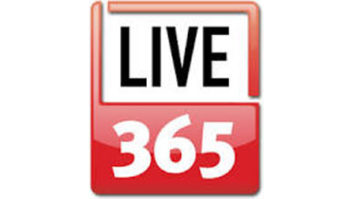In the first two articles of this three-part series, I presented factors to consider when looking for a radio station to buy and additional items relative to financing the deal.
Assuming you’ve gotten that far, the really tough part comes next: How to run the station and make enough money doing it to keep it.
Operational Lesson #1: It’s the commercials, stupid!
This is essential and basic but often overlooked by new owners, who can quickly become ex-owners.
Broadcasting operates in the “public interest, convenience and necessity” and it will pay you to remember that (especially in a small town, but more about that later). But, sales — and collections — are what pay the bills. “No lights, no public interest” is my motto.
As owner, you are a sales guy. A sales guy (men and women both). Regardless of whether you carry a list (of clients), you are constantly selling the station — to your friends, acquaintances, contest winners, local charities, local businessmen and women, etc., etc., etc.
Forget about Led Zeppelin. Forget about who’s louder, you or the new FM rocker down the street. Concentrate on being the nicest station in town to your listeners and clients.
I tell all of my staff people (who, by the way, are also all sales guys!): “We are always the easiest station in town to do business with.”
This is not to say that you need to fall over and kiss the shoes of the person who wants a hundred spots for $19.95. There will be people with whom you simply cannot afford to do business. Fine.
But you, as station owner and community representative, must cultivate every single potential client in your market. If you cringe at the thought of doing that, you may wish to think about going back to sitting behind the mike or wherever, because you are going to have a rough time with the ownership thing.
Also remember, in a small market (and even most medium markets) 70 to 80 percent of your sales will come from the mom-and-pop business down the street. They know nothing about Arbitron or CPMs. They want advertising — and a lot of times, you have to convince them that they really do want it — for only one reason: to help them grow their business.
If you design a campaign for them that does that, you’ll have a client for life.
You may eventually grow into needing “The Book” in order to get agency money, but in the beginning, don’t worry that you don’t subscribe to a ratings service. Concentrate instead on putting people into your client’s parking lot.
Operational Lesson #2: Voice tracking.
This also is a simple one: Don’t.
But I will expand on that thought. My standalone AM (full-time 1KW) in Corpus Christi, Texas has a sports/talk format. We go local/live for a call in show every morning and afternoon. We air every local/regional sporting event we can, around 200 games a year, and we produce them all.
We produce a local high school sports review each Saturday using local high school journalism students. We go to a satellite feed in between all of this, so I suppose that could be considered a form of tracking; but the idea here is that you have to give your local audience a reason to listen to you.
You are not Clear Channel if you’ve read this far. You (presumably) do not have an affiliate station in Dallas or Chicago from which to draw talent anyway, so why mess with tracking? What you will have is a locally owned and operated business, so run it like one. Program to your community. Sell to local businesses.
All the other stuff
OK, OK, this is not all the other stuff, because I want to write a book someday and need to save something for that.
If you know someone who owns his or her own business, ask if you can sit down and pick his/her brain.
Take an accounting course at your local community college. You will need to be able to decipher the financial records you get from the seller. (And if you don’t get reasonable financials — something better than scribblings on a napkin — take a walk or pay no more than salvage or “stick” value for the station.)
Research the market. And take your spouse with you when you do. This should include driving around, particularly in the CBD during business hours. Look for commercial activity, types of cars driven around. You can get a great feel for a town just by cruising around and stopping in a café for a cup of coffee.
Accurately assess your financial situation. If you are young and have few commitments, you can tolerate more risk than a 50-year-old with three kids in college.
You must plan on several months (maybe a year, if a catastrophe like 9/11 happens) of negative cash flow. Can you live with that, emotionally and financially?
Once you obtain your dream, you have to feed it daily. It helps to be a jack of all trades, but don’t overdo it. If you’re nursing the transmitter back to health all night, it’ll be tough to put on the sales hat the next day. On the other hand, if you have extra time, doing some of your own upkeep is fun (did I really write that?) and saves money.
In spite of the Paperwork Reduction Act the politicians brag about, there is a ton of paperwork involved in running your own deal. And some of it comes with big fines for non-compliance (employee taxes, for instance). It is possible to do your own; I do mine, though I also enjoy having bamboo shoots driven up under my fingernails. However you handle this chore, it’s imperative to do it.
And finally: Go do it! Owning a radio station is, by far, the most fun I have ever had at work. I cut the occasional spot, work on the transmitter, write sales pitches, meet and greet clients and listeners when I can and just, in general, “work the station.” I can hear the results of my efforts every day.
You are a local broadcaster. And, an owner.
The articles in this series can be found at radioworld.com












